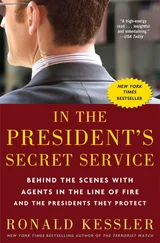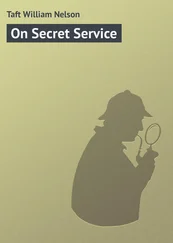William Fitzpatrick - Secret Service Under Pitt
Здесь есть возможность читать онлайн «William Fitzpatrick - Secret Service Under Pitt» — ознакомительный отрывок электронной книги совершенно бесплатно, а после прочтения отрывка купить полную версию. В некоторых случаях можно слушать аудио, скачать через торрент в формате fb2 и присутствует краткое содержание. Жанр: foreign_antique, foreign_prose, на английском языке. Описание произведения, (предисловие) а так же отзывы посетителей доступны на портале библиотеки ЛибКат.
- Название:Secret Service Under Pitt
- Автор:
- Жанр:
- Год:неизвестен
- ISBN:нет данных
- Рейтинг книги:5 / 5. Голосов: 1
-
Избранное:Добавить в избранное
- Отзывы:
-
Ваша оценка:
- 100
- 1
- 2
- 3
- 4
- 5
Secret Service Under Pitt: краткое содержание, описание и аннотация
Предлагаем к чтению аннотацию, описание, краткое содержание или предисловие (зависит от того, что написал сам автор книги «Secret Service Under Pitt»). Если вы не нашли необходимую информацию о книге — напишите в комментариях, мы постараемся отыскать её.
Secret Service Under Pitt — читать онлайн ознакомительный отрывок
Ниже представлен текст книги, разбитый по страницам. Система сохранения места последней прочитанной страницы, позволяет с удобством читать онлайн бесплатно книгу «Secret Service Under Pitt», без необходимости каждый раз заново искать на чём Вы остановились. Поставьте закладку, и сможете в любой момент перейти на страницу, на которой закончили чтение.
Интервал:
Закладка:
It is quite clear that the above letter was written by the same nameless spy who poses in Froude's book as 'Lord Downshire's friend.' ' One of his letters, dated November 19, 1797, is preserved,' writes Mr. Froude; but, no doubt, a few others are preserved too, and may be found in the correspondence of Lord Castlereagh. How they escaped destruction is a marvel. Wickham, on January 11, 1799, writes, regarding 'United Irishmen' at Hamburg: 'The enclosed very curious papers the Duke of Portland desires may be laid before the Lord Lieutenant, and afterwards destroyed .'
So careful was the spy of his reputation that he vouchsafes not a signature. Internal evidence, however, shows that he was the man who made his disclosure to Downshire, and was by him put in correspondence with Portland.
From the letter just quoted it appears that, after his efforts to pick news from Talleyrand and fish in Irish channels at Paris, he returned, viâ Cuxhaven, to London, where he arrived on Tuesday night, May 15, 1798. This date is worthy of note. The spy feared to show himself in London and felt that his life was unsafe. What brings him back to London on May 15, 1798? His favourite post was Cuxhaven or Hamburg. O'Coigly, Binns, and Leary, though arrested in March en route to France, were not put on their trial until Monday, May 21, 1798. This case is reported at extraordinary length in Howell's 'State Trials' and would fill a volume. Scott, afterwards Lord Eldon, prosecuted. The mass of secret information which the Crown contrived to acquire strikes very forcibly. Letters written in cipher by O'Coigly to Lord Edward Fitzgerald and others are translated and expounded by Scott. All the parties concerned in the conspiracy had false names. Mrs. Mathiessen 83 83 See Froude, iii. 283, or ante .
is called 'Marks;' 'a man going to William's,' means 'going to France,' etc. It was largely on evidence of this sort that O'Coigly was convicted and hanged. 84 84 Compare letter from 'Castlereagh to Wickham,' p. 44 ante .
The betrayer tells Talleyrand that 'the spirit of the North was completely broken.' In point of fact, however, it was in the North that the real martial spirit of the United Irishmen blazed, and there the best battles were afterwards fought under the leadership of Orr and Monroe. Turner was anxious to make the French turn their thoughts of invasion to other points on the Irish coast, and he so far succeeded that in August, 1798, Humbert's expedition, embracing not 1,000 men, landed at Killala, among the starved and unarmed peasantry of Connaught. He calculated on meeting enthusiastic support; but, as Mr. Lecky says, it soon became apparent how fatally he had been deceived. After winning one battle, and losing another, Humbert surrendered to Cornwallis.
'May I assure them that you'll come in three months?' Talleyrand is asked. The object of this and other questions, which, to a casual reader, seem hardly consistent with Turner's treachery to his friends, is now pretty plain. Great doubt prevailed as to whether an invasion of Ireland was really to be attempted. The First Consul blew hot and cold upon it. If the spy, as an envoy of the United Irishmen, could only extort from Talleyrand an explicit reply in writing avowing the intention to invade, and telling the exact time on which the descent on Ireland was to be made, England would thus be well prepared, and her fleet able to destroy the French armament as she had already destroyed that of De Winter. Why Bonaparte, at first so anxious for invasion, should have changed his mind, is explained, in the recently published Memoirs of Gouverneur Morris, as due to the conflicting reports of Irish envoys. At St. Helena he told Las Cases that his mistake in '98 was to have gone to Egypt and not to Ireland. 85 85 Mémoires de Sainte-Hélène.
Mr. Froude states that the betrayer had discovered one of the objects of the Papists to be the seizure of property, and had determined to separate himself from the conspiracy. Attention is requested to that part of the foregoing letter 86 86 The precise and careful wording is that of a lawyer, which Turner was.
where the writer refers to the Cromwellian holders of estates in Ireland, and asks that every individual be guaranteed his property without respect to old Catholic claims and to their political conduct prior to the time of actual invasion. Samuel Turner represented some of the Cromwellian Settlers, and 'his most particular friends,' as he calls them, were amongst those who held grants of land in succession to the old Papist proprietary. The descendants of these men viewed invasion with alarm, lest their lands should go, just as the property of the Papists had already gone. 87 87 Mr. J. P. Prendergast, in his Cromwellian Settlement of Ireland , prints, from original MSS., a 'list of adventurers for land in Ireland' (p. 417). Among them we find: 'Samuel Turner of London, merchant taylor, £200.' 'Richard Turner, senior and junior, taylors, £200.' These persons are also found subscribing the same sum, he adds, as 'adventurers, for the sea-service' (p. 417). The hereditary feelings and predilections of a Cromwellian Settler can be traced in the letter to Talleyrand.
Talleyrand's caution in talking with Turner contrasts with the freedom with which he opened his mind on the same subject to his confrères . A very important book was published in 1890 at Paris by M. Pallain, 'Talleyrand sous le Directoire.' It depicts his diplomatic life, and gives the pith of his despatches. From Turner and Duckett he probably derived some impressions regarding Great Britain and Ireland. He augurs well from the Irish rebellion, which has been 'cemented,' adds Talleyrand, 'by the blood of celebrated victims.' The first victim was the Rev. William Jackson, in 1794. Talleyrand urges the invasion of Ireland and the establishment of an Irish Republic 'for the instruction or chastisement of England.' 'Nelson's fleet,' he says, 'is manned almost exclusively by Irishmen,' and that their patriotism 'will teach them to see in the English their oppressors and enemies.' Talleyrand's sketch of 'Irish Landed Proprietors' is full and curious.
Another man who, besides Talleyrand and Grégoire, dealt cautiously with Turner was Stone, as Turner in his secret letter to the Home Office admits. Stone had been tried in England for high treason and sent into exile. 88 88 I find in the contents of the long-sealed chest at Dublin Castle, 'The Examination of Samuel Rogers, of Cornhill, Banker,' regarding his relations with Stone, dated May 10, 1794. With it is preserved an autograph statement by Richard Brinsley Sheridan, technically called his examination, embracing ten folios, dated May 9, 1794, and explaining his intercourse with Stone.
At Hamburg and at Paris he belonged to the set mentioned by Mr. Froude's cloaked spy 89 89 Vide p. 5 , ante .
as including Lady Edward Fitzgerald (Pamela), Lady Lucy Fitzgerald, Mrs. Matthiessen, and General Count Valence. Madame de Genlis in her 'Memoirs' mentions Stone conjointly with her daughter Madame de Valence and her 'niece' Pamela. 90 90 Memoirs of Madame de Genlis , iv. 130-36.
CHAPTER V
LORD CLONCURRY SHADOWED
Discoveries and arrests now multiplied, despite the care with which Reinhard and Lady Edward persuaded themselves that all negotiations had been fenced.
Lord Cloncurry in his Memoirs writes of his 'dear friend Lord Edward Fitzgerald,' and readers of that book will remember the touching narrative given of the writer's arrest and long confinement in the Tower. This peer seeks to show that he himself was innocent of treason, but Mr. Froude states, after studying the letters of Lord Downshire's friend, that 'Lord Cloncurry was a sworn member of the Revolutionary Committee.' 91 91 Froude, iii. 287.
The betrayer's first interview with Downshire took place on October 8, 1797. In that interview he ranked among the marked men, Lawless, afterwards Lord Cloncurry. During the next month we find his movements narrowly watched. One of Mr. Froude's sensational surprises is a statement in reference to this subsequent British Peer and Privy Councillor. Pelham, Chief Secretary for Ireland, writing to the Home Office on November 7, 1797, refers to the fact – if fact it is – that
Интервал:
Закладка:
Похожие книги на «Secret Service Under Pitt»
Представляем Вашему вниманию похожие книги на «Secret Service Under Pitt» списком для выбора. Мы отобрали схожую по названию и смыслу литературу в надежде предоставить читателям больше вариантов отыскать новые, интересные, ещё непрочитанные произведения.
Обсуждение, отзывы о книге «Secret Service Under Pitt» и просто собственные мнения читателей. Оставьте ваши комментарии, напишите, что Вы думаете о произведении, его смысле или главных героях. Укажите что конкретно понравилось, а что нет, и почему Вы так считаете.












